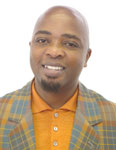





It highlights the fundamental statement of principles of media freedom, promotes independent and pluralistic media, encourages media's contribution to community development, pays tribute to journalists who have lost their lives in the line of duty, and discourages bullying, brutality and viciousness against media personnel and operations.
An independent, free and plurastic media is an integral part of a stable democracy and sustainable development. It carries both constitutional and citizenship obligations of providing correct, accurate, responsible, and analytical information enriching debates on policy and programmes, disseminating information, promoting development, holding Government to account to citizens, monitoring economic activities and strengthening decision making processes.
However, the advent of media freedom has given rise to unprecedented abuse of media power by unscrupulous mass communicators and authoritarian leaders within our societies whose aim is to divide and destroy the very communities that media freedom seeks to help.
Again, in the race to become more popular and to generate more profits, media is tempted to undermine or neglect its role of building a healthy and progressive society.
Media can be potentially used to accomplish a myriad ends - good and bad. For this reason, any democratic community has to distinguish between good media - that promotes the information capacity of the nation - and one that contributes to the disintegration, decay and animosity within the society.
Said Herbert Marshall McLuhan, a visionary educator of mass media, "All media work us over completely. They are so persuasive in their personal, political, economic, aesthetic, psychological, moral, ethical, and social consequences that they leave no part of us untouched, unaffected, unaltered."
While our media has done well to hold Government and other powerful institutions to account to citizens, expose corruption, human rights violations, abuses of power and privileges, exploitation and misappropriations of national resources and lots of other mishaps that are committed daily by those in power at the expense of the society; it has yet to enjoy trust and credibility amongst the masses.
The questions that the masses ask about mainstream media are - do media support or undermine the democratically elected government? Who controls the mainstream media groups and what are their agendas and motives? Does the media do a good job when it comes to covering issues affecting the masses such as hunger, poverty, service delivery and development?
Soon after independence in 1994, South Africa outlined development as key areas the country needed to improve on for it to make independence meaningful.
Development can never be guaranteed by politicians alone, whether they are elected or self-nominated. Development is not only about lack of material resources - but also about lack of information, power, opportunities, choice and security.
In the end, it is a question of people's opportunities to influence their situation, claim their rights and being able to voice their concerns. But to exercise these rights presupposes that citizens have access to information that has not been filtered, contaminated, censored, distorted or doctored.
The media has some of the most crucial development functions to perform, namely, providing people with reliable information that can support the constitution's vision, government programmes and citizens' aspiration of transforming SA into a developed nation free from poverty, hunger, unemployment, diseases, illiteracy, social ills and regional disparities.
To achieve this, the media is supposed to draw its power from the communities it serves and in return empower those masses to be active partners in the democratic and development processes. It should reflect the diversity of voices, and ownership has to be pluralised as much as possible.
Otherwise, the media faces the danger of consigning itself to social irrelevance if it continues to ignore the national vision and masses' aspiration as packaged in the constitution.
Our media has thus far failed to interact with the masses. Instead it has spent too much time pushing its points-of-view; analysing its own speculations, wishes, fears, fantasies and prejudices or interviewing the so-called experts. As a result, democratic and development realities at grassroots level remain one of the great untold stories by the media. And, if told, they are grossly misrepresented.
"We really need a lot more media there to speak power at the local level, to give ordinary citizens at the local level the power to actually make a difference through communication, rather than having to resort to barricades," says media studies professor Guy Berger.
There is an increasing tendency in the mass media sector to allocate more space to trivial things in life, such as fashions and affairs of the rich and the over-privileged, and to aggressively advertise a consumerist lifestyle beyond the reach of the masses. This happens at the expense of development challenges, sufferings and aspirations faced by the masses and remote underdeveloped areas.
We therefore, as a nation, need to be cautiously monitoring our media in order to ensure that it functions to the greatest benefit of the country's masses and not to the detriment of the constitution's vision. Mass media should be a voice of the voiceless, hope of the hopeless, defender of the weak, promoter of peace and driver of development. Or else critics will refer to it as "the mass media without the masses''.
